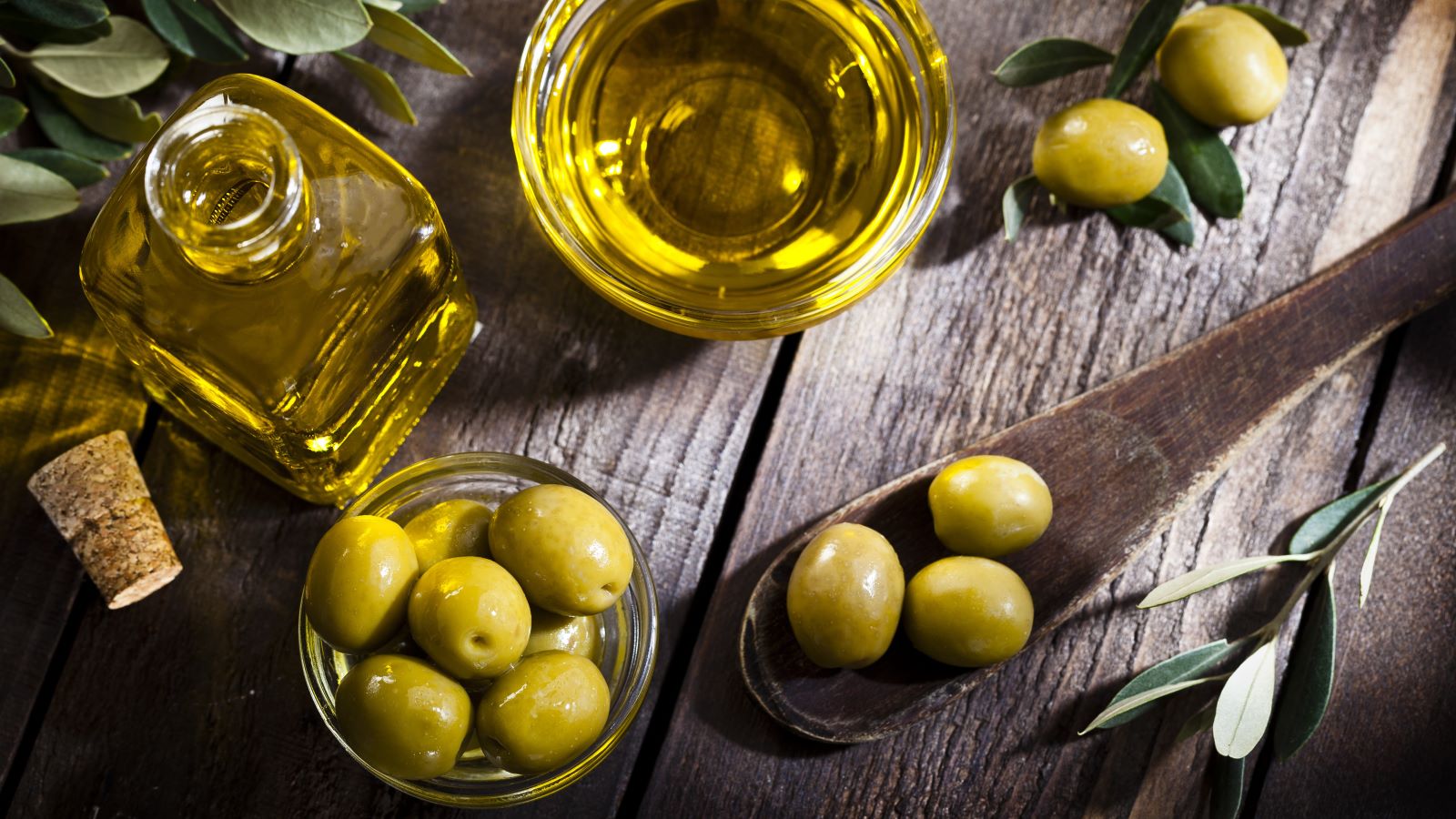It isn’t just another health trend – the Mediterranean diet actually works.
But what makes it so effective? Here are nine staples of the Mediterranean diet, and why they deserve a spot on your plate.
Find a doctor near me
1. Olive oil.
Essential in any kitchen, olive oil is packed with health benefits.
“Olive oil is rich in monounsaturated fats, which support heart health,” says Jillian Wanik, RD, a registered dietitian at Hartford HealthCare. “It also contains vitamin E and plant compounds, called polyphenols, which can protect the heart and reduce inflammation.”
To get the most benefits, Wanik suggests keeping two types of olive oil in your kitchen.
“A cold pressed, hand-picked extra virgin olive oil is perfect to use for a small drizzle, just before serving food. Your cooking oil can also be an extra virgin olive oil, but can be hot press. Neither should be kept longer than six months.”
> Related: And the Healthiest Diet of 2023 Is….
2. Chickpeas.
Chickpeas have been a Mediterranean staple for over 7,000 years, and for good reason.
“They’re packed with plant-based protein, fiber, vitamins and minerals that help regulate blood sugar and improve cholesterol levels,” says Wanik.
Try adding chickpeas to salads, soups, or making your own hummus for a delicious, nutritious snack.
> Related: 3 New Superfoods to Add to Your Plate
3. Salmon.
Loaded with omega-3 fatty acids, salmon can help lower inflammation, reduce triglycerides and improve blood pressure.
“It’s also an excellent source of vitamin D and protein, which can help with muscle mass, bone health and weight loss,” Wanik notes.
Aim for at least two servings of salmon (or another fatty fish) per week to reap the benefits.
> Related: 5 Reasons to Get More Fish – And Omega-3s – In Your Diet
4. Yogurt.
Yogurt can be a healthy part of your diet – but not all yogurts are created equal.
“It’s important to check the label, and look for plain or Greek yogurt with no added sugars,” Wanik says. “You can use fresh fruit, spices or other toppings to add your own flavor.”
Yogurt is a great source of protein, calcium and probiotics.
“Probiotics help support a healthy gut microbiome, which is important for your immune system and digestion,” Wanik adds.
> Related: 5 Ways to Protect Your Gut Microbiome
5. Cheese.
Good news, cheese lovers.
“In moderation, cheese is a welcome part of the Mediterranean diet,” says Wanik. “Cheese tends to be a good source of calcium and protein.”
Wanik suggests Mediterranean cheeses like:
- Halloumi
- Manchego
- Goat cheese
- Mozzarella
- Parmesan
- Pecorino
- Ricotta
“Parmesan makes a particularly good choice, with 11 grams of protein and 300 milligrams of calcium per ounce,” Wanik notes.
And more good news – it’s lactose free, making it a great option for anyone who struggles with dairy.
6. Grapes.
If you love a sweet treat, grapes are a delicious – and nutritious – choice.
“Red grapes are rich in antioxidants, including resveratrol, which helps protect cells from damage.”
But be sure to consume grapes in moderation, as they’re high in natural sugars.
7. Nuts.
They may be small, but nuts deliver big health benefits.
“Nuts are packed with fiber, healthy fats and plant compounds, and can lower your risk of coronary heart disease,” says Wanik.
And with so many different nuts to choose from, you can get countless different benefits.
“Almonds have the most calcium, while peanuts are a great source of protein,” says Wanik. “Pistachios help protect your cells and eyes, while walnuts are loaded with omega-3s.”
Try to include different types of nuts in your diet, and opt for unsalted, raw or dry-roasted varieties.
8. Quinoa.
Quinoa is one of the few plant-based foods that contains all nine essential amino acids, making it a complete protein source.
“But that said, its overall percentage of protein is still less than beef, chicken and fish,” says Wanik. “One cup of cooked quinoa contains about eight grams of protein, and it’s naturally gluten-free.”
Use quinoa as a base for grain bowls, salads or as a substitute for rice in your favorite dishes.
> Related: Nutrition Smack Down: Healthiest Nuts
9. Fresh herbs.
Basil, parsley, oregano and other fresh herbs do more than add flavor — they pack a nutritional punch.
“Fresh herbs tend to have more nutrients than dried herbs,” says Wanik. “That means they provide more vitamin, minerals and other important nutrients that are great for your health.”
A little sprinkle goes a long way – both for your health and your taste buds.
Here’s the bottom line.
The Mediterranean diet isn’t just about what you eat – it’s also about how you eat.
“Instead of restricting yourself, the Mediterranean diet allows you to enjoy your favorite foods in a sustainable, healthy way,” says Wanik.
So whether you’re drizzling extra virgin olive oil over roasted vegetables, adding quinoa to your salad, or snacking on a handful of nuts, every bite brings you one step closer to better health.


